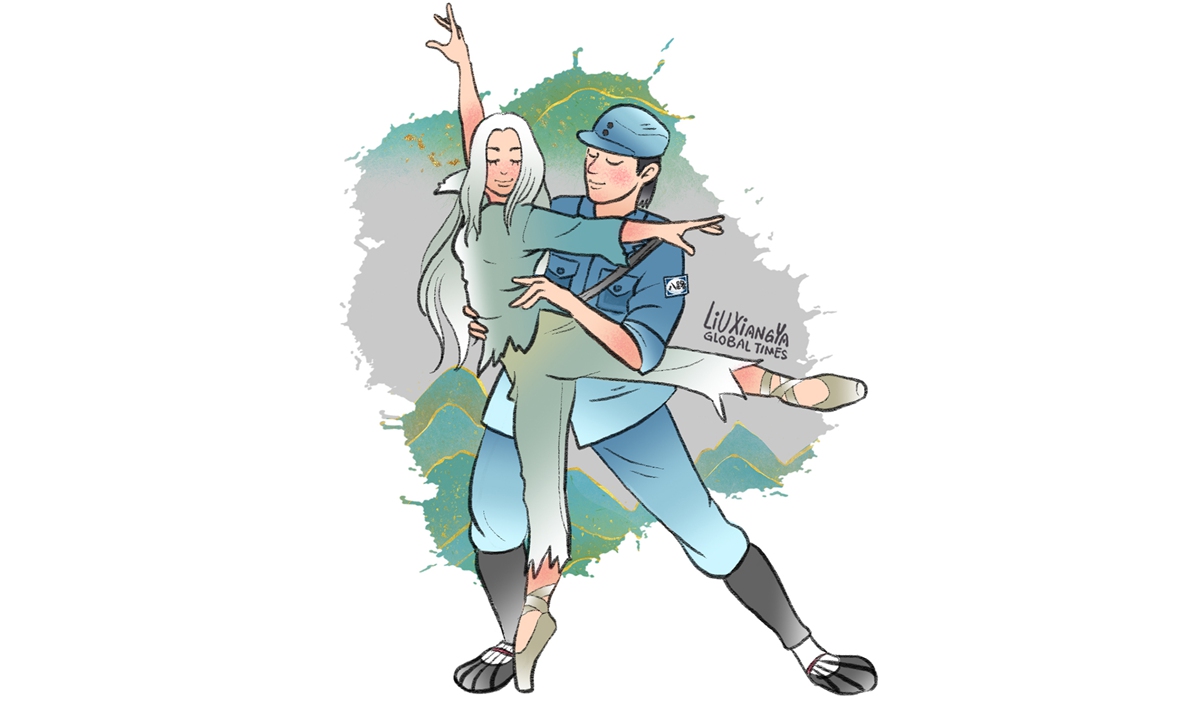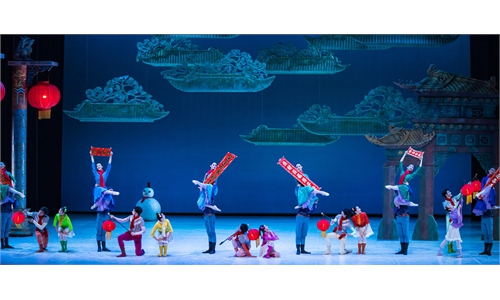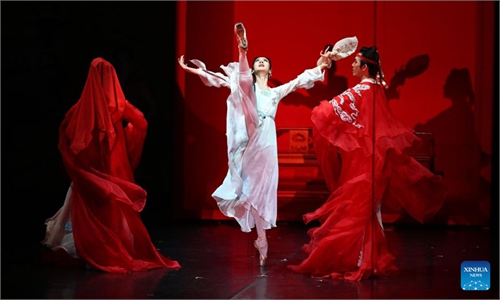ARTS / THEATER
Rosy 'ballet diplomacy' reviewed, exemplary for exchanges

Illustration: Liu Xiangya/Global Times
Recently, a delegation of the Chinese People's Association for Friendship with Foreign Countries (CPAFFC) visited the headquarters of the Matsuyama Ballet in Tokyo, Japan. It was the first visit made by members of a Chinese nongovernmental organization soon after this year. The dance troupe gave the Chinese guests a special welcome with all dancers wearing the "white swan" dresses. Such an exchange is of particular importance at this time given the recent challenges faced by China-Japan relations.
Founded by Masao Shimizu in 1948, the Matsuyama Ballet is one of the most renowned ballet dance troupes in Japan. Shimizu and his wife Kiko Matsuyama, also a ballet dancer, had long been sympathetic to the Chinese people for the suffering of China caused by Japanese troupes.
In 1952, they first saw the Chinese film the White-haired Girl when it was screened in Japan.
Based on the legend, White-haired Girl tells the story of a girl named Xi'er, the daughter of a poor farmer, whose family is persecuted by a brutal landlord. They were so touched that they came up with an idea to adapt it into a ballet dance drama.
Without any resources, they wrote a letter to the Chinese department concerned. Before long, they received the opera script, music scores, as well as stage photos.
In 1955, after surmounting various challenges, they debuted the ballet with Shimizu as the scriptwriter and Matsuyama as the principal dancer. In July that same year, Matsuyama was invited to visit China.
Then premier Zhou Enlai introduced her to two other Chinese actresses, one of whom had also played the role of the white-haired girl, while the other had reprised the role in an opera.
With their help, she went back to Japan and made big improvements to the ballet. In 1958, their renewed version of the White-haired Girl debuted in China, becoming the first foreign dance company to perform the Chinese dance drama.
To their surprise, premier Zhou was in attendance at the debut of the performance, which moved them to tears.
The success of their performance made them believe that China and Japan would never be isolated from each other as two neighbors, representing the voice of many Japanese people.
Since then, the troupe has given 20 performances in China, charting a history of "the ballet diplomacy" between China and Japan. In July 1972, the Shanghai Ballet Troupe visited Japan and performed the same ballet.
Two months later, China and Japan normalized bilateral relations thanks to the dance drama who served as a channel for Japan to learn more about China and plant the "seed" of friendship between the two peoples.
In the last two decades, the second generation of the Shimizu's family, Teutaro Shimizu, followed in the footsteps of his parents and came to Beijing to study ballet dancing and later acted as the representative of the dance troupe, and his wife Yoko Morishita became her mother-in-law's successor, coming to China to give performances many times.
Their efforts have made the "seed"blossom in China-Japan cultural exchanges.
After the start of the COVID-19 pandemic, the dance troupe posted a video online to show solidarity with China.
During an intermission of their performance, they said "Fight, Wuhan! Fight, China!" in their costumes, which prompted many in China to call and thank them for their support. When Japan was hit by the pandemic, the troupe also received support from Chinese netizens who sent them face masks.
The year 2023 marks the 45th anniversary of the signing of the China-Japan Treaty of Peace and Friendship, which is one of the most important milestones in the history of China-Japan exchanges.
With the easing of the pandemic, nongovernmental organizations have gradually resumed exchanges between the two sides.
That was how the CPAFFC delegation's visit was made.
Given currently unstable China-Japan relations, the friendly exchanges signify a rosy tradition and people's with of strengthening cultural exchanges.
It is expected that many more excellent performances will be brought back to the stage between the two countries and boost relations like "ballet diplomacy" did.


